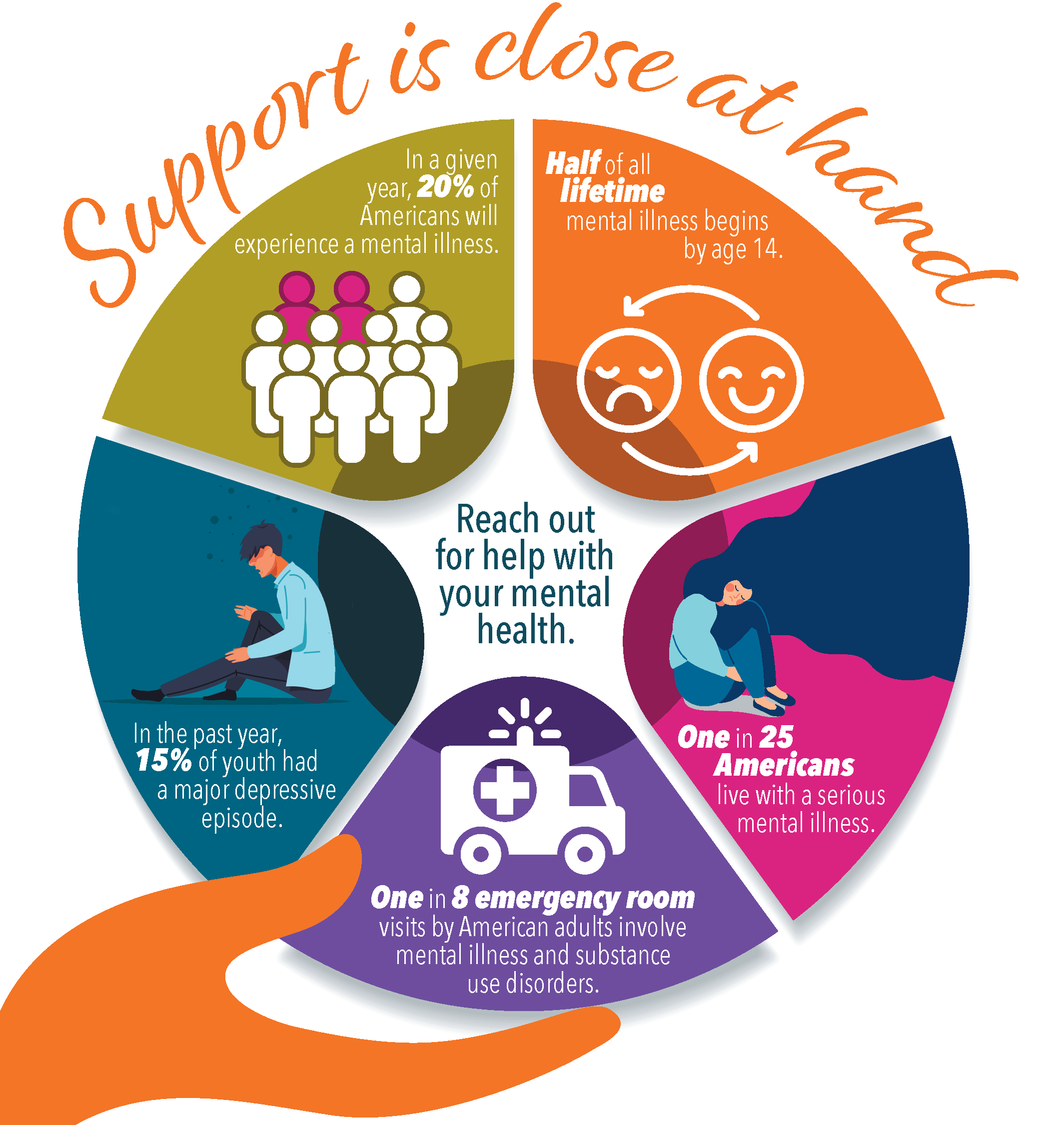Comprehensive Inpatient Mental Health Providers for Effective Therapy
Inpatient psychological health services stand for a crucial part of the medical care system, supplying a intensive and organized setting for individuals experiencing severe psychological distress. Discovering the subtleties of this continuum exposes significant effects for both specific recovery and more comprehensive psychological wellness outcomes.
Comprehending Inpatient Mental Health Providers
Inpatient psychological health and wellness services offer vital support for people experiencing serious psychological distress that can not be taken care of successfully in an outpatient setting. These solutions are developed to offer an extensive level of treatment in a structured environment, usually within a health center or specialized facility. People admitted to inpatient programs generally present severe signs and symptoms, such as suicidal ideation, extreme clinical depression, or psychosis, necessitating continuous tracking and treatment.
The admission process generally includes a thorough evaluation by psychological health and wellness specialists, who review the individual's psychological state, background, and instant demands. Once confessed, people take part in a selection of therapeutic techniques customized to their specific demands, consisting of medication administration, specific treatment, and group sessions. This alternative strategy aims to support the individual's problem, promote security, and foster coping abilities.
Inpatient psychological health services not only address instant wellness concerns but likewise offer as a bridge to recurring treatment. By providing a controlled atmosphere, these solutions promote the growth of treatment plans that can be continued in outpatient settings, therefore making sure a continuum of treatment and boosting lasting end results for individuals with complex mental health needs.
Key Parts of Effective Treatment
Efficient treatment in inpatient mental health and wellness services makes up several essential elements that promote healing and stabilization. A thorough analysis is crucial to recognize the person's certain requirements and difficulties. This evaluation notifies the growth of a customized treatment plan, which works as a roadmap for treatment.
One more important component is the multidisciplinary team approach. Cooperation amongst psychiatrists, psychologists, registered nurses, and social employees makes sure that numerous point of views add to the individual's care, improving the effectiveness of therapy. Evidence-based healing techniques, such as cognitive-behavioral therapy (CBT) and dialectical behavior modification (DBT), are also indispensable, supplying structured strategies that attend to maladaptive thought patterns and behavior issues.

Last but not least, a concentrate on aftercare planning is critical to make sure a seamless change to outpatient solutions, reducing the threat of regression and promoting lasting health. These collective parts produce an effective therapy framework within inpatient psychological health solutions.
Benefits of Comprehensive Treatment

Extensive care in inpatient psychological health solutions supplies numerous benefits that substantially boost client results. Among the key advantages is the holistic technique to therapy, addressing not only the psychological signs however additionally the physical, social, and psychological demands of patients. This extensive evaluation permits customized treatments that advertise total health.
Another benefit is the integration of multidisciplinary teams, which fosters collaboration among healthcare professionals. This collaborative environment guarantees that clients receive coordinated care, reducing the risk of fragmented treatment and enhancing interaction amongst caretakers. In addition, thorough treatment assists in continuity of services, allowing for seamless changes from inpatient to outpatient setups, which is critical for lasting healing.

Finally, the structured atmosphere of comprehensive inpatient treatment offers a risk-free space for people to engage in therapeutic activities, aiding them establish dealing strategies and resilience. Collectively, these advantages add to more reliable therapy and enhanced lifestyle for individuals experiencing psychological wellness dilemmas.
Evidence-Based Restorative Approaches
In the world of psychological health Inpatient Mental Health Program and wellness treatment, evidence-based healing techniques play a critical function in making sure that clients receive reliable and clinically supported treatments. These methods incorporate the very best offered study with scientific know-how and individual values, cultivating a tailored therapy experience that deals with individual requirements.
Cognitive Behavior Treatment (CBT) is among one of the most widely acknowledged evidence-based approaches, concentrating on identifying and altering adverse thought patterns and habits. This organized strategy has demonstrated effectiveness in dealing with problems such as depression, stress and anxiety, and PTSD. Dialectical Actions Treatment (DBT) is specifically reliable for people with borderline individuality disorder, emphasizing the development of emotional regulation and interpersonal effectiveness skills.
Additionally, medication management is commonly an integral part of evidence-based therapy, as psychotropic drugs can alleviate symptoms and boost total performance. Joint treatment designs, which include multidisciplinary teams, even more enhance the efficacy of inpatient services by ensuring comprehensive evaluations and continuous monitoring.
Inevitably, the assimilation of evidence-based restorative methods not only promotes positive clinical end results but additionally encourages individuals, promoting a sense of firm and strength in their psychological health journeys.
Transitioning to Outpatient Support
The change from inpatient mental health solutions to outpatient support marks a critical stage in an individual's healing journey. This duration calls for cautious preparation and control to guarantee connection of treatment and to reduce the threats of relapse or dilemma. Effective discharge preparation ought to begin early in the inpatient stay, including a multidisciplinary team that consists of psychiatrists, psychologists, registered nurses, and social workers.
Crucial element of a successful change include the growth of a detailed aftercare plan customized to the individual's specific demands. This plan needs to detail follow-up appointments, medicine management, and healing treatments, as well as recognize community resources and assistance teams that can help with recurring recuperation.
Furthermore, person and family education is essential during this phase. Comprehending the indicators of prospective obstacles and the relevance of adhering to treatment can equip individuals and their assistance systems.
Regular follow-up and reassessment of the outpatient plan are necessary to resolve advancing obstacles. By fostering a collective connection in between outpatient and inpatient providers, the likelihood of sustained healing boosts, ultimately improving the client's high quality of life and minimizing the danger of readmission.

Final Thought
In recap, detailed inpatient psychological wellness solutions use a crucial structure for resolving extreme emotional distress via a multidisciplinary strategy. Inevitably, such comprehensive treatment is essential for lasting psychological health and wellness and wellness.
The admission process typically involves a comprehensive evaluation by mental health professionals, that review the person's mental state, history, and immediate demands.Efficient treatment in inpatient mental wellness solutions makes up several key parts that promote healing and stabilization.Thorough treatment in inpatient mental wellness solutions provides numerous advantages that substantially enhance person results.The transition from inpatient psychological health and wellness services to outpatient assistance marks a crucial stage in an individual's recovery trip.In recap, comprehensive inpatient psychological health and wellness solutions use an important structure for dealing with extreme mental distress through a multidisciplinary technique.